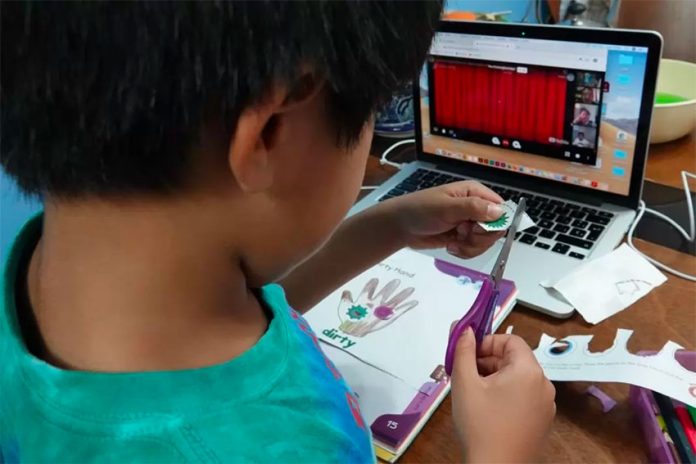Four television broadcasters have reached an agreement with the federal government to screen virtual classes to students whose schools are closed due to the coronavirus pandemic.
Multimedios, Televisa, Televisión Azteca and Televisión Imagen inked a deal with the government on Monday that will see them paid a combined 450 million pesos (US $19.9 million) to broadcast educational content.
The Education Ministry said in a statement that an estimated 30 million students from preschool to high school will access the virtual classes, so the cost works out to just 15 pesos (US $0.66) per student.
At a signing ceremony with the TV company bosses, President López Obrador described the agreement as historic and thanked the broadcasters for their support.
The government and the television stations are “joining efforts,” he said, likening the agreement to that struck between his administration and private hospitals to ensure that there are enough beds for coronavirus patients.
The president stressed that the televised classes won’t amount to an “emergency” course, asserting that they will be based on and meet the requirements of the national curriculum.
The broadcasters have committed to screening the classes from August 24 – the start of the 2020-21 school year – until December 18.
Education Minister Esteban Moctezuma explained that virtual classes and educational programs will be broadcast on four TV channels operated by the private broadcasters as well as two public ones.
Educational content will be screened 24 hours a day, seven days a week, he said, estimating that 94% of the nation’s households will be able to access it.
“It’s a robust, official scheme that will provide a service to 30 million students of 16 school grades,” Moctezuma said.
“With six channels we’ll achieve broad national coverage. Those who don’t have access to the signal will have radio [classes], free textbooks, workbooks and special attention.”
Moctezuma said that the televised educational program isn’t meant to be a replacement of schools because teachers and their face-to-face classes are “irreplaceable.”
However, the television education content, developed by teachers and the Education Ministry, “provides certainty“ for students and their families, he said.
Televisa CEO Emilio Azcárraga said the pact between the private broadcasters and the government was unique in the world and showed that challenges can be met and goals can be reached by working together.
For his part, Benjamín Salinas of TV Azteca said that education is the most valuable gift for the nation’s youngsters and investing in students’ learning is “investing in the future.”
As the coronavirus pandemic shows no sign of abating in Mexico, the 2020-21 school year looks set to be like no other.
Something else that shows no sign of abating is students’ screen time, with many now likely to spend just as much time staring at a TV as they do their computers and phones.
Source: Milenio (sp), El Financiero (sp)
